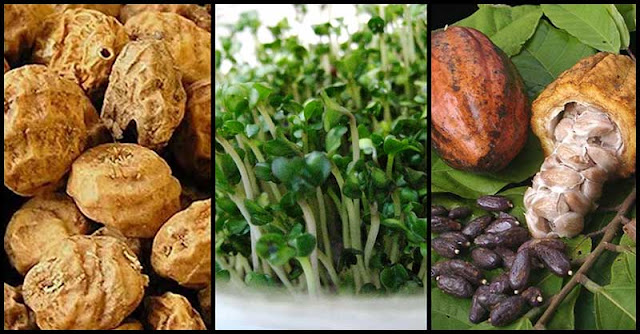Certain nutrients are needed by our bodies to fight off various diseases and support our cellular functions. When it comes to battling chronic diseases like cancer and promoting healing, we should opt for superfoods that are extremely rich in anti-cancer compounds. These foods are considered especially beneficial for our health and well-being as they are much more powerful than cancer.
Check out these little-known superfoods we need to incorporate in our diet to give our body its needed nutrients to stay strong against cancer.
Broccoli Sprouts
Broccoli sprouts are three-to-four day-old broccoli plant that looks like alfalfa sprouts, but taste like radishes. This lesser-known cruciferous green has some very promising health benefits. It contains a high concentration of a chemical known as sulforaphane which is one of the most potent antioxidants and detoxification substances on the planet. Studies have found that this sulfur-rich compound can help reduce our risk of certain cancers including stomach, bladder, colorectal, and breast cancers.
In research published in the Annals of Oncology, results showed that intake of broccoli sprouts and other cruciferous vegetables could significantly reduce cancer risk.
Furthermore, in a separate study, researchers have found that sulforaphane has the ability to inhibit the growth of cancer cells by releasing antioxidant and detoxification enzymes that protect the body against carcinogens.
Paul Talalay, M.D., a professor of pharmacology and molecular sciences at the Johns Hopkins University School of Medicine, says that:
“Three-day-old broccoli sprouts consistently contain 20 to 50 times the amount of chemoprotective compounds found in mature broccoli heads and may offer a simple dietary means of chemically reducing cancer risk.”
Moreover, Jed Fahey, Sc.D., director of the Cullman Chemoprotection Center at Johns Hopkins University, has supported Talalay team’s conclusion. He says:
“Broccoli sprouts provide “dramatic protection” against digestive issues, including stomach cancer, ulcers, gastritis, and overgrowths of Helicobacter pylori, a bacterium strongly associated with inflammation related to digestive cancers.”
Tiger Nuts
Tiger nuts are small root vegetables that are also known as chufa nuts or earth almonds. This ancient superfood is called nuts because of their appearance while the presence of stripes on their exteriors gives them the name tiger nuts.
Aside from being starchy and fibrous, tiger nuts have a slightly sweet and coconut-like flavor. They are the perfect snack option as they can fill up on our fiber intake for the day.
Every household should be stocked with tiger nuts, tiger nut flour, and tiger nut milk because of their numerous health benefits, which include their anticancer properties.
Tiger nuts are a rich source of antioxidants such as vitamin E, which protect the body from harmful free radicals that are associated with chronic diseases, including cancer. An ounce of it can provide our body with providing 278 percent of your recommended daily intake of vitamin E. Some studies also revealed that they can also improve the immune system, regulate blood sugar levels, and prevent liver damage.
Cacao
Cacao is a popular main ingredient in chocolate. Consumption of raw cacao powder can provide our body with very high amounts of nutrients and minerals as compared to the heat-pressed cacao powder.
Experts revealed that cacao has 40 times the antioxidant content of blueberries, thus making it a powerful and natural anti-cancer agent. Several studies have shown that the consumption of superfoods rich in antioxidants can reduce the risk of cancer and other similar chronic diseases. Furthermore, it can also help lower down the body’s inflammation levels, reduce the risk of obesity, and boost cardiovascular health.
One study published in the journal Pharmacognosy Communications showed that cacao has an inhibitory effect against some cancer cells.
Along with eating these anti-cancer superfoods we should also have regular exercise and have the habit of minimizing or avoiding consumption of sugar and substances like tobacco and alcohol.









